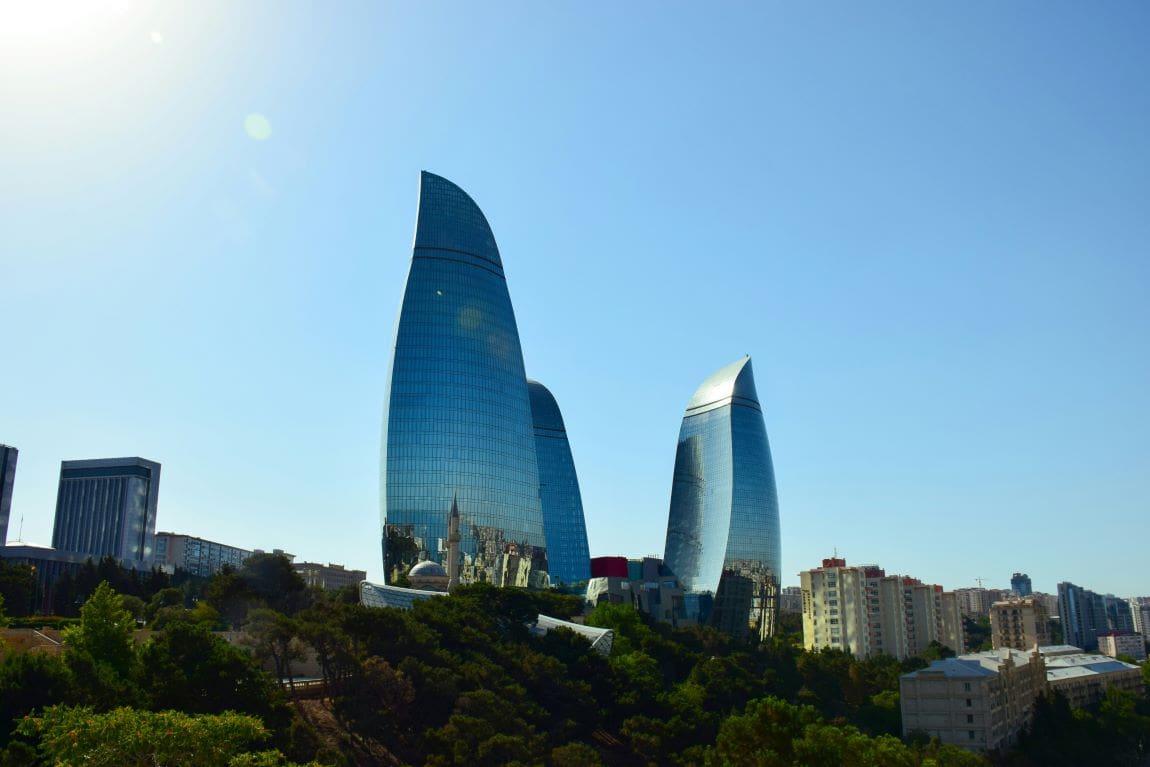With less than two months before the COP29 summit, the Presidency, led by Azerbaijan, has launched the COP29 Presidency Initiatives as part of a broader “Action Agenda” designed to accelerate global climate action. This suite of voluntary initiatives aims to address cross-sectoral issues and keep the momentum going, even as the formal climate agenda faces delays due to disagreements over financing for developing countries.
In a letter addressed to nearly 200 countries and various stakeholders, Mukhtar Babayev, COP29 President-Designate, outlined the details of the Initiatives, which seek to bring together governmental and non-governmental actors to enhance ambition and drive meaningful progress on climate action.
The initiatives reflect Azerbaijan’s commitment to addressing pressing climate issues and its unique role as the first COP host from the Caucasus region. The aim is to push action across all key climate pillars, focusing on energy, finance, agriculture, cities, human development, and the peace-climate nexus.
The presidency’s efforts come as formal negotiations remain deadlocked on the critical issue of climate finance. Nations are expected to agree on a new figure to replace the $100 billion annual commitment, set in 2020, to support developing nations in climate adaptation. While this target was only met in 2022, the general consensus is that this sum is insufficient, leaving talks over the next finance goal mired in conflict.
In an attempt to circumvent this slow progress, Azerbaijan has put forward voluntary initiatives aimed at accelerating climate action before, during, and after COP29.
Among the flagship initiatives is the Baku Initiative for Climate Finance, Investment, and Trade (BICFIT), which will focus on fostering investment into green sectors, promoting policy development, and facilitating cross-border dialogue on climate finance and trade. This ties closely with the Climate Finance Action Fund (CFAF), a fund to be capitalised through voluntary contributions from fossil fuel-producing countries and companies. The fund will prioritise both public and private sector engagement and will also feature grant-based financing mechanisms to support developing countries facing climate-related disasters.
Azerbaijan, heavily dependent on fossil fuels, is expected to lead the way by making the first contribution.
Energy is a key focus area, with several ambitious pledges. The COP29 Green Energy Zones and Corridors Pledge is set to promote investment in green energy infrastructure and regional cooperation. The Global Energy Storage and Grids Pledge will target an increase in global energy storage capacity, aiming for six times the 2022 levels by 2030, while supporting grid expansions of over 80 million kilometers by 2040. Another high-profile commitment, the COP29 Hydrogen Declaration, seeks to unlock the potential of clean hydrogen markets, addressing technological and regulatory barriers and promoting international collaboration.
Beyond energy, the presidency is addressing other sectors critical to the climate agenda. The Baku Harmoniya Climate Initiative for Farmers aims to empower rural communities, particularly women, by fostering collaboration on climate-resilient agricultural practices. Additionally, the Multisectoral Actions Pathways (MAP) Declaration for Resilient and Healthy Cities aims to enhance urban climate action, with a specific focus on funding resilience projects and fostering multisectoral cooperation within cities.
Human development is also a central theme, with the Baku Initiative on Human Development for Climate Resilience driving investment in education, skills development, and health. This initiative will particularly focus on youth and children, while improving environmental literacy through enhanced education standards.
Meanwhile, the COP Truce Appeal, modelled after the Olympic Truce, encourages nations to observe a ceasefire during the summit, highlighting the importance of peace in addressing climate change. Closely linked is the COP29 Peace and Climate Initiative, which aims to establish a Centre of Excellence to connect vulnerable regions with necessary resources and promote further action on the peace-climate nexus.
Addressing climate transparency, Azerbaijan has launched the Baku Global Climate Transparency Platform (BTP) to support developing nations in submitting Biennial Transparency Reports, a key part of the Enhanced Transparency Framework established under the Paris Agreement. The platform will promote international knowledge exchange and mobilise resources to build capacity where it’s most needed.
Despite the ambitious nature of these initiatives, the formal negotiations remain deadlocked, with a major sticking point being how much funding developed nations should provide to support developing countries in their fight against climate change. The need to replace the outdated $100 billion annual commitment has led to seven rough financing options being proposed in recent UN drafts, but consensus is still far from being reached.
Nevertheless, COP29 President Mukhtar Babayev has expressed optimism about Azerbaijan’s role as host, saying, “Azerbaijan is honoured by the confidence that the global community has placed in us to host COP29. But we are just one country and we cannot solve the climate crisis alone. We seek to inspire every actor and demonstrate what is possible with commitment and determination… every fraction of a degree matters.”
COP29 UN High-Level Climate Champion Nigar Arpadarai echoed these sentiments, urging stakeholders to take bold action: “Now is the time for the whole universe of climate stakeholders to sign up, speak up and step up on climate action. If we are to meet our goals, we need everyone to do their part. This is your chance to play an important role in COP29.”
The success of these voluntary initiatives will be critical in maintaining momentum ahead of COP29, where both governments and non-state actors will be expected to commit to enhanced climate action and ensure that these pledges move from paper to tangible outcomes. However, the unresolved financing discussions loom large, and the path to a final agreement remains uncertain as the summit approaches.
Key COP29 Presidency Initiatives:
- Climate Finance Action Fund (CFAF): $1 billion fund supported by fossil fuel-producing nations and companies to catalyse public and private climate action.
- Baku Initiative for Climate Finance, Investment and Trade (BICFIT): Platform to promote green investment and international cooperation on climate finance.
- COP29 Green Energy Zones and Corridors Pledge: Commitments to expand green energy infrastructure and foster regional cooperation.
- COP29 Hydrogen Declaration: Public-private collaboration to unlock clean hydrogen market potential.
- COP29 Global Energy Storage and Grids Pledge: Goal to scale energy storage capacity and expand global energy grids.
- Baku Harmoniya Climate Initiative for Farmers: Empowering rural communities through climate-resilient agricultural practices.
- Multisectoral Actions Pathways (MAP) for Resilient and Healthy Cities: Addressing climate challenges in urban environments through multisectoral cooperation.
As the summit draws near, Azerbaijan’s ambitious initiatives are poised to play a pivotal role in shaping the future of climate action, even as the central issue of financing remains unresolved.
Article Source:
Press Release/Material by COP29 Presidency | UNFCCC
The full COP29 Presidency’s Letter to Parties and Constituencies on the Action Agenda is available on this link.
Featured image credit: Adil Sattarov | Unsplash




